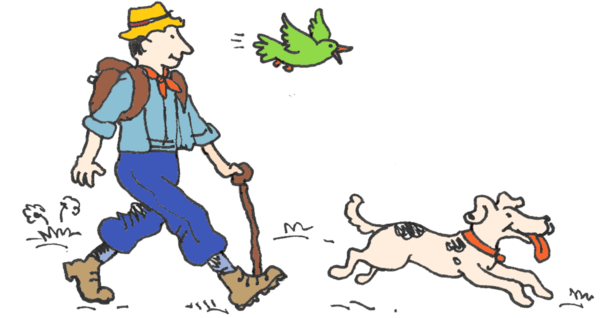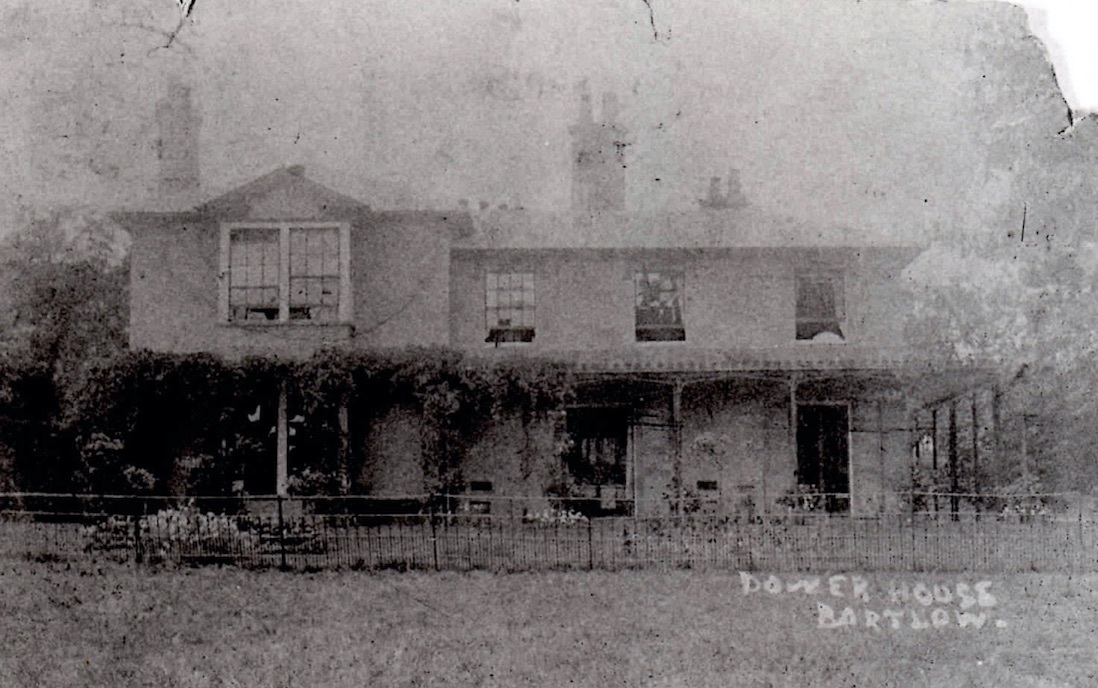Professor Robert (Mac) McCance (1898 -1993)
Robert Alexander McCance, known to his colleagues as ‘Mac’, was born in Ulster and saw active service in the Naval Air Service in WWI. He went on to attend Sidney Sussex College, Cambridge to read agriculture, but while there he realised his future lie in the sciences and he switched courses. It was while studying at Cambridge he met and married his wife, Mary McGregor, a medical student.
After graduation Mac was working as a doctor and research scientist at Kings College Hospital, London when his groundbreaking work on nutrition attracted the attention of Cambridge University.
He accepted an appointment as Reader of Medicine at the University and a Fellowship at his old college in 1938 on condition that he could bring with him his research technician, Alex Hayne and his research partner, Elsie Widdowson. Mac moved his wife, son, Colin, and daughter, Catriona, to the Dower House, Bartlow in 1939 – just in time to make a vital contribution to the War.
Britain had been importing half the meat, more than half the cheese and a third of the eggs the population consumed. In fact, Britain imported more food than ever before or since. If German U-boats crippled food imports most of the protein in the Country’s diet would be lost. Without a balanced diet the population would weaken and be prey to diseases – they certainly wouldn’t be fit enough for the hard physical work that was required in wartime from both the Armed Forces and the Civilians. As experts in nutrition Mac and Elsie had to answer the question – “Without imported goods can Britain feed itself or will the Germans be able to diet us into defeat?”
Mac and Elsie were known for experimenting on themselves. This time they also recruited student volunteers and Mac’s mother-in-law, Mrs. MacGregor, who owned The Dower House and lived with the family. In all 8 people agreed to live for three months on an experimental diet eating only British grown produce. Each week they could have only one egg, 4oz margarine (no butter at all), one pound of meat and 4oz fish plus a quarter of a pint of milk every day. To make up the necessary calories unlimited amounts of potatoes, vegetables and wholemeal bread had to be eaten.
To test the diet further Mac took some of the volunteers plus his son, Colin, on a 200 mile cycling, walking and mountaineering trip around the Lake District in freezing weather.
However, the diet had its downsides:
- It took ages to eat enough bread and vegetables each day to provide the necessary calories
- All the fibre in the diet caused 250% bigger poos
- All the starch lead to what Mac described as “a remarkable” amount of flatus (farting)
The Government introduced rationing in 1940 based on Mac and Elsie’s research but, fortunately, thanks to the American convoys the ration was never reduced to the drastic diet they had lived on.
Mac’s wife, Mary, had her own war work. She managed a Canteen on behalf of the YMCA at the old School House (now known as Chetwyn House) for the use of soldiers billeted in the village. She was assisted in the canteen by Mrs. Georgie Brown, the shepherd’s wife, and Mrs. Sturgeon, the Station Master’s wife. At the outbreak of War she was also allocated a Mrs. Morgan and her three toddlers as evacuees to look after. As the War dragged on the house filled up with various friends who came to escape the bombing in London, but she still found time to tour the village on Tuesdays collecting War Savings.
Mac and Elsie Widdowson co-wrote and published The Composition of Foods in 1940 which is still regarded throughout the world as the foremost publication on human nutrition and in 2014 was re-published in its 7th edition.
Mac was also Chairman of the Royal Navy Committee on Survival at Sea and helped design covered inflatable life rafts, saving many shipwrecked sailors’ lives. After the War he did vital research on childhood malnutrition in post-war Germany. Key to Mac’s research was the herd of pigs he kept on a small experimental farm in the grounds of the Dower House between 1949 and 1965 assisted by local pig man, Terry Cowan.
Mac was made Professor of Experimental Medicine shortly after the War, elected a Fellow of the Royal Society in 1948 and appointed a Companion of the British Empire in 1953. He retired from his post in 1966, the same year his wife, Mary, died.
This was only retirement of a sort. Mac moved into rooms at Sidney Sussex and continued his research. He spent long periods in Kampala, Uganda working on child malnutrition. Colleagues said of Mac that he could be difficult. He was never a diplomat and was given to making critical, albeit accurate, criticisms of the work of fellow academics – sometimes to their faces! He had a long running animosity towards Isaac Harris who held opposing views to his concerning the addition of calcium to bread. The composition of the bread we eat today is based on Mac’s 1940s research and recommendations, but remains conntraversial. He has been described as ‘one of the unsung heroes of public health’.
Mac continued publishing academic papers and his “The Birth and Early Development of Infant Physiology” was published the year before he died. He continued with his pre-war diet based on potatoes for the rest of his life and survived until he was 95!
Mac’s decendants, the Ogilvys, continue to live in Bartlow.


